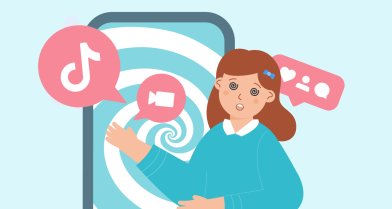Why 7–9-Year-Olds Lie—and What You Can Do About It

You might have noticed that younger kids often fantasize and mix up what’s real and imagined. They still have limited cognitive development in distinguishing between truth and fiction. This can show up as something they want to be true and something that actually happened, or doing something wrong but wishing they hadn’t.
As they mature—around ages 7 to 9—lying starts to take on a different meaning. At this age, kids already understand what honesty is, but sometimes they still choose not to share something or to make up a lie. In this article, we explore why this happens and how to support your child in these moments.
📊 What Research Says
Studies show that by ages 7–9, kids don’t just fantasize anymore—they start planning details and crafting untruths, or lies, to make them sound believable. They take into account what the other person knows and can even anticipate their reaction.
🔑 Why Kids Hide the Truth
At this stage, kids begin to understand that the same fact can be seen in different ways. They realize that words can not only describe reality but also change how others perceive it.
What we’ve learned from studies and from working closely with families shows that kids aged 7–9 may lie for different reasons.
- To avoid punishment: “If I tell the truth, I’ll get scolded.”
- Out of fear of disappointing their parents: “I don’t want Mum to get upset.”
- To test boundaries: “What will happen if I lie?”
- To play with the idea of a “secret world.” Their sense of personal space is forming: “This is my secret; I don’t want to share it.”
- Imitating adults. Kids hear adults bend the truth—“Say ‘I’m not home”—and start copying that.
- To appear better in the eyes of adults or friends.
✅ How to Respond in the Best Way
Kids at this age don’t lie because they’re “bad” or because you’ve done something wrong—they’re learning how to live in a complex world. It’s important to help them see that honesty makes the world better and will help them personally feel better, too. When you react calmly, a child starts seeing truth not as a threat, but as a way of communicating that builds respect and trust.
Here’s what we’ve found helpful—and what you might try too:
- Stay calm when you finally hear the truth. Instead of “How could you lie to your parents?” you could say, “Thank you for being honest. I understand how hard it was to tell me, but it’s important for me to know the truth so I can help you.”
- Help them sort through their feelings and recognize emotions: “Were you scared I’d get angry? Let’s think about what else you could have done.” And keep in mind, if you did get angry, apologize to your child.
- Explain the consequences of lying: “When you lie, it’s hard for me to trust you. Trust means we can tell each other the truth and not be afraid”.
- Praise honesty, even when the truth is unpleasant: “Thank you for telling me. That means a lot to me.”
- Show that making mistakes is okay: “Even if you do something wrong, I still love you. What matters more is that we’re honest with each other.” And if you make a mistake, own up to it—modeling is powerful.
🌱 Remember: your child is learning how to tell the truth and you are one of their primary teachers. When we help kids feel safe, their need to lie often fades away. Your calmness and support will teach them not to be afraid to be themselves.
References:
- Cognitive empathy boosts honesty in children and young adolescents, Journal of Experimental Child Psychology, 2024
- Lying and truth-telling in children: From concept to action, Child Development, 2010
- Lying in the elementary school years: Verbal deception and its relation to second-order belief understanding, Developmental Psychology, 2007
Проверьте электронный ящик



















